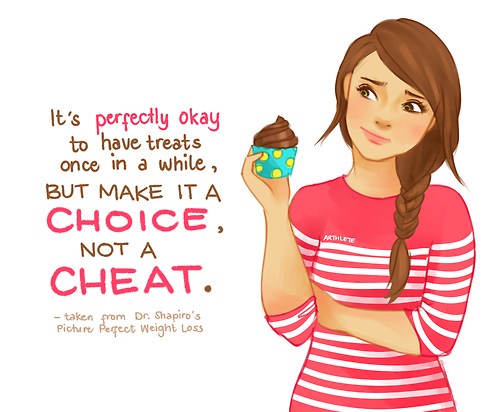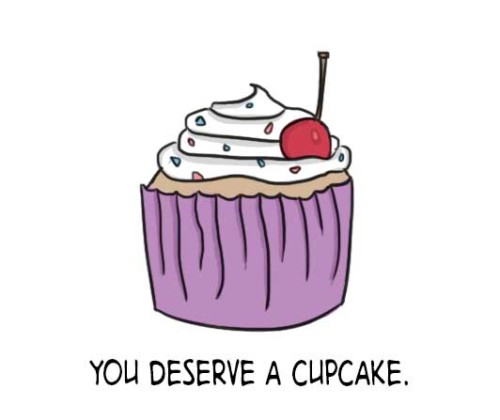I don't think I have experienced an uncontrollable craving in months. No, I don't eat sweets every day, nor junk food, ice cream, chips; in fact, I maintain a relatively "healthy" and "clean", micronutrient-dense diet simply because I find no desire to constantly have sweets.
 |
| Image source: arthlete.tumblr.com |
Funny thing is, during my depths of my eating disorder, I used to constantly be craving sugary things, but I was too afraid to eat them, so instead I would binge on pounds and pounds and lettuce and spinach. I used to eat until I was so physically uncomfortable that I could no longer move and even then I wanted more. This happened every single time I put food in my mouth; once I started, I could not stop. I was absolutely terrified of becoming a binge eater. I didn't know what to do, but I would absolutely not let myself touch the calorie dense foods that I craved for fear of my binging episodes.
But you know what? I didn't become a binge eating. I "recovered" from binge eating by simply eating more. Sounds paradoxical, doesn't it? But it's true.
Let me preface this by saying that yes, binge eating disorder is a very real and serious mental illness that warrants medical attention. However, it is impossible to develop binge eating disorder after a restrictive eating disorder; they are on complete opposite sides of the mental spectrum.
Your body is a lot smarter than you think it is. When you restrict it of food and thus are energy imbalanced, it will do everything in its power to get you to eat more food. Ever heard of leptin and ghrelin? They are actually hormones that regulate hunger and energy expenditures based on how much body fat stores you have. So no, you are not crazy. You are not developing BED. Your body is hormonally trying to restore itself.
 |
| Image source: positivedoodles.tumblr.com |
Paleo, rawtill4, fruitarianism, IIFYM, I really don't care what popular "healthy lifestyle" you want to argue with, but the bottom line successful message is the same: you have to eat enough calories. Paleo? Eat like a caveman, but eat enough. Rawtill4 or fruitarianism? You'd better be smashing in the bananas and dates because you need enough calories. And while these different healthy lifestyles do claim that they work because you are eating lots of x and not any y, I believe that they work simply because they make the person energy balanced. They fight against the mainstream mantra of "eat less to lose weight" and the terribly harmful 1200 calorie diet.
One of my favorite TEDTalks is from Sandra Aamodt and I highly recommend that you watch it. She advocates mindful eating, feeding your body when it it hungry, and set point theory.
So what is this "set point" theory? Your body has a natural, genetically predisposed weight and lean muscle to fat ratio that is performs best at and will self regulate to maintain it at that point. That means that when energy balanced, and only energy balanced, it will make you more hungry and eat more when it is below the set point and less hungry when it is above the set point.
Unfortunately, set point will not work when you are in starvation mode because at that point your body is in total chaos. It would much rather make sure that it is alive than maintain a certain weight and because it is not sure when you will feed it next, it will make you extra hungry and store any extra energy can obtain. That is why most people will overshoot their set point at first. That's why so many people will gain weight eating 2000 calories or less: they are energy imbalanced. Because of years of restriction, whether just some quick fix diet or an eating disorder, their body is unsure of when it will be fed next and so in an effort to stay alive, it will store energy.
The bottom line is simple: eat enough. Heal. Allow your body to take care of the rest.


